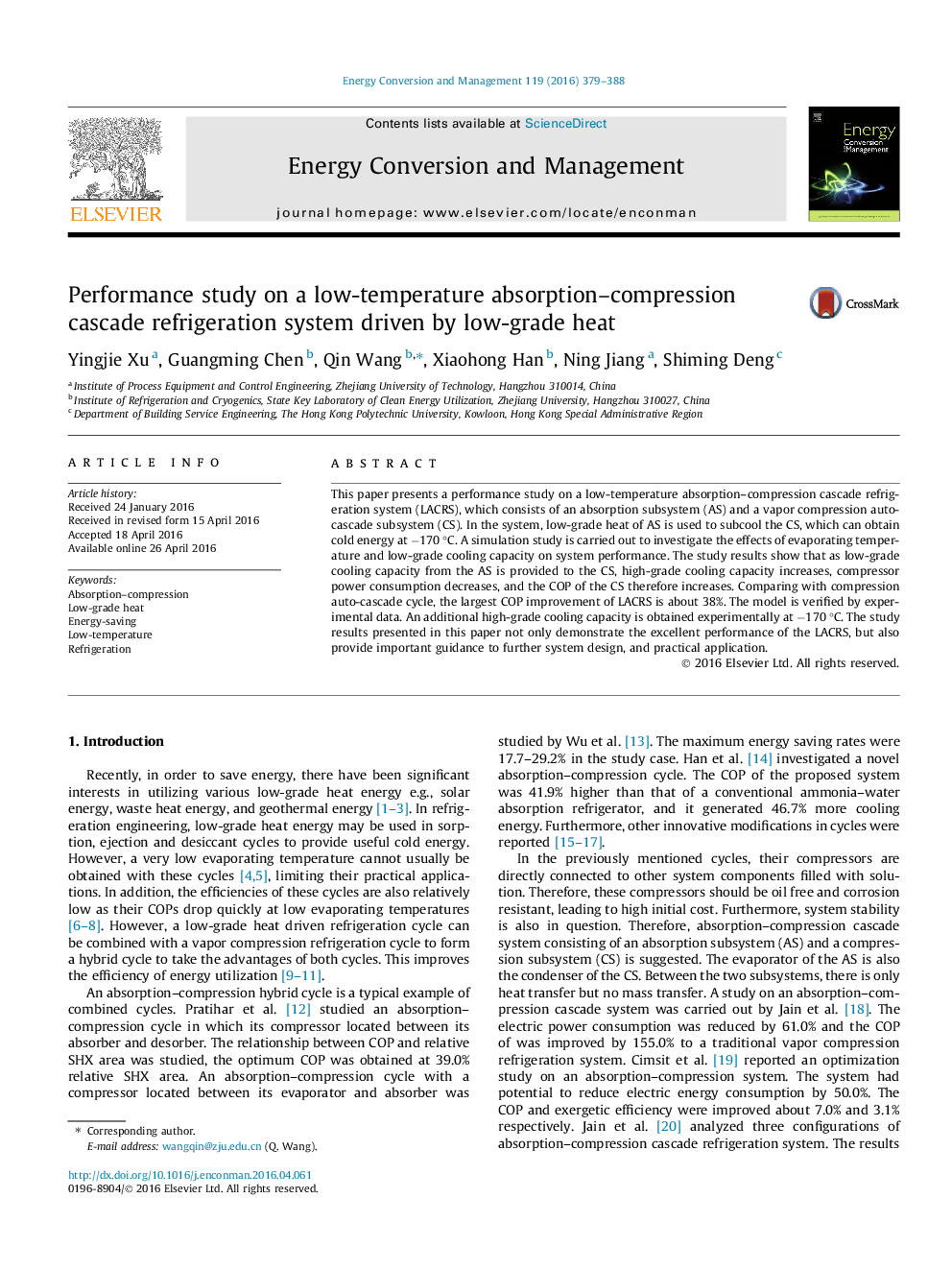| Article ID | Journal | Published Year | Pages | File Type |
|---|---|---|---|---|
| 765177 | Energy Conversion and Management | 2016 | 10 Pages |
•An absorption–compression system for low-temperature is developed and analyzed.•Cooling capacity, compression power, and discharge temperature are all improved.•At −170 °C, giving 200 W low-grade cooling capacity, COP increases by 28.6%.•Simulation results are verified experimentally, showing good agreement.
This paper presents a performance study on a low-temperature absorption–compression cascade refrigeration system (LACRS), which consists of an absorption subsystem (AS) and a vapor compression auto-cascade subsystem (CS). In the system, low-grade heat of AS is used to subcool the CS, which can obtain cold energy at −170 °C. A simulation study is carried out to investigate the effects of evaporating temperature and low-grade cooling capacity on system performance. The study results show that as low-grade cooling capacity from the AS is provided to the CS, high-grade cooling capacity increases, compressor power consumption decreases, and the COP of the CS therefore increases. Comparing with compression auto-cascade cycle, the largest COP improvement of LACRS is about 38%. The model is verified by experimental data. An additional high-grade cooling capacity is obtained experimentally at −170 °C. The study results presented in this paper not only demonstrate the excellent performance of the LACRS, but also provide important guidance to further system design, and practical application.
